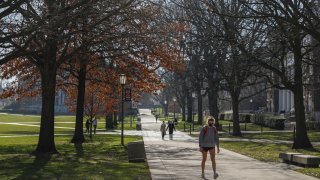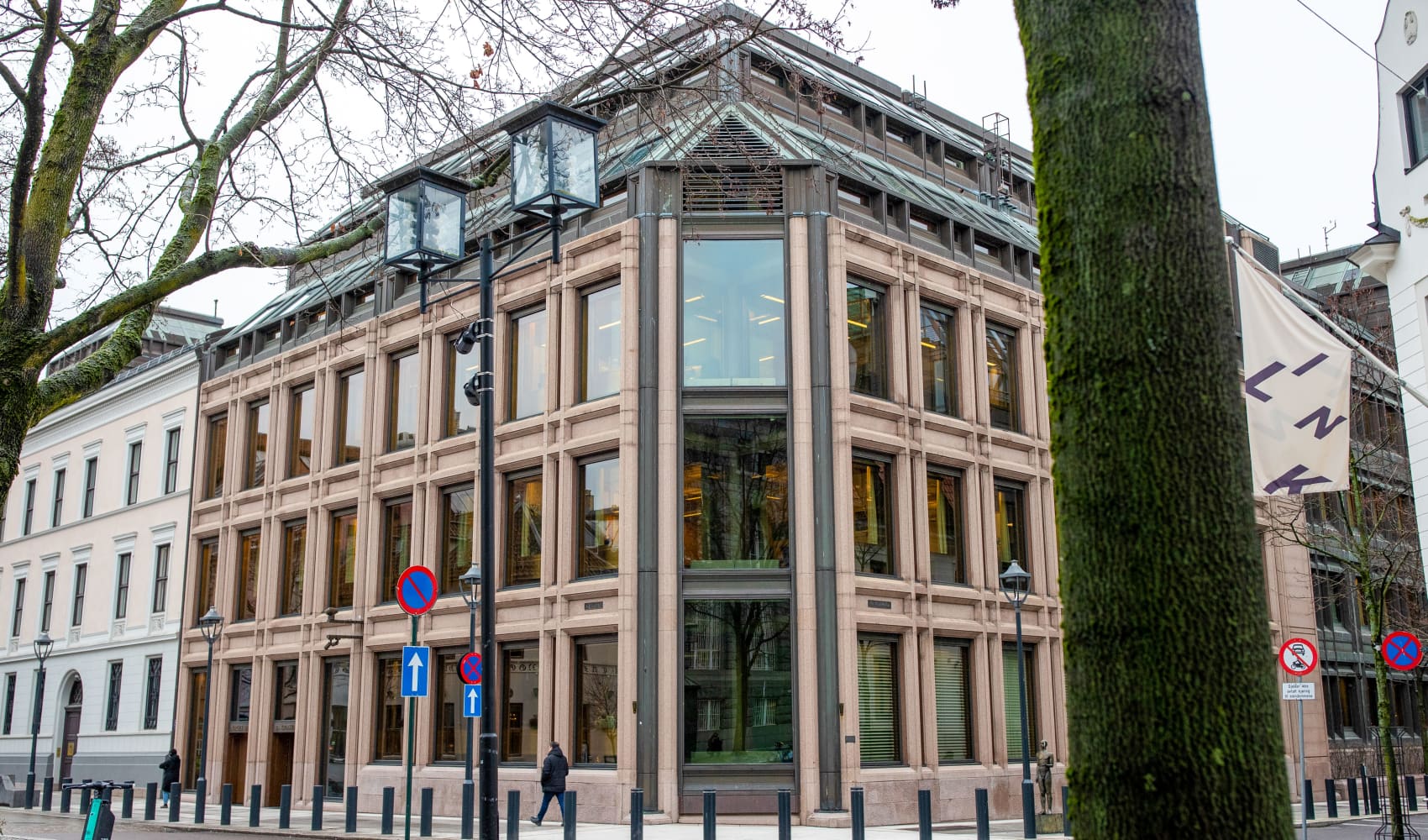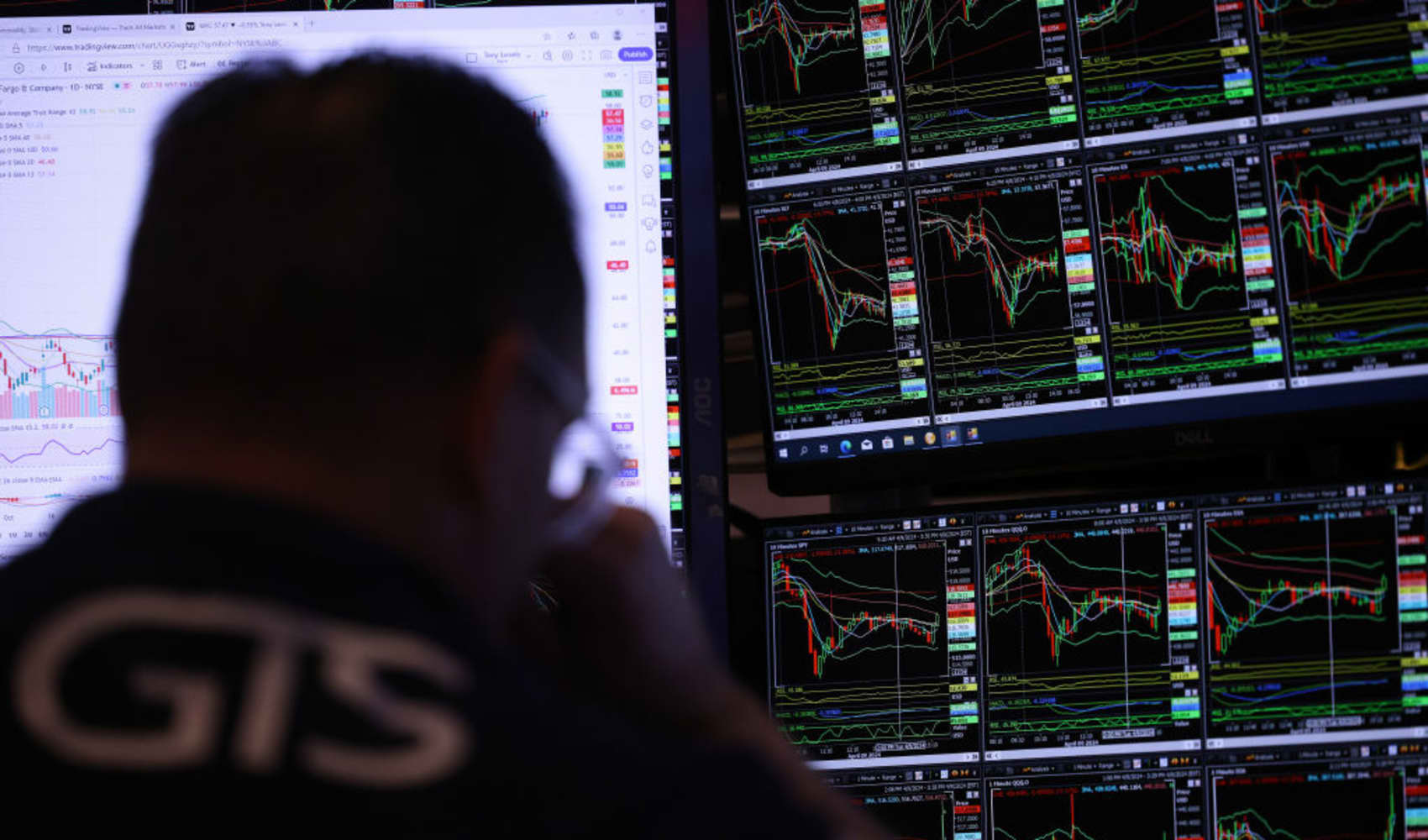
- For the sixth time, the U.S. Department of Education has extended the pandemic-era payment pause on federal student loans.
- Here's what borrowers should know.
The U.S. Department of Education has extended the payment pause on federal student loans for the sixth time since the pandemic began more than two years ago.
This time, borrowers have been told they won't have to resume paying their bills until September. So, here's what borrowers need to know.
Student loan forgiveness could still happen
Despite improvements to the economy since the pause on federal student loan bills was first announced in March 2020, President Joe Biden has said it remains too early to ask borrowers to begin paying again.
"We are still recovering from the pandemic and the unprecedented economic disruption it caused," Biden said, in an April 6 statement announcing the latest pause.
Money Report
Meanwhile, the latest delay is being announced as deliberations around student loan forgiveness are still ongoing at the White House.
Biden is under tremendous pressure to reduce some of the country's $1.7 trillion in outstanding education debt. Senate Majority Leader Chuck Schumer, D-N.Y., and Sen. Elizabeth Warren, D-Mass., are pushing him to cancel $50,000 per borrower.
Nearly 66% of likely voters are in support of the president forgiving student debt, with more than 70% of Latino and Black voters in favor, a recent poll found.
White House chief of staff Ron Klain said last month the administration wanted to come to its decision on loan forgiveness before turning payments back on.
"The president is going to look at what we should do on student debt before the pause expires, or he'll extend the pause," Klain said on the podcast "Pod Save America" in early March.
The pause could be extended again
Because the payment pause has been extended so many times, experts say borrowers are unlikely to take the latest announcement of bills resuming in September too seriously.
"What's a borrower to believe or plan for anymore when the government keeps changing its mind?" said Scott Buchanan, executive director of the Student Loan Servicing Alliance, a trade group for federal student loan servicers.
And this time, the payments are scheduled to start back up again just a few months before the midterm elections, which many observers have said could trigger troubling headlines for Democrats and lower turnout at the polls for the party.
"I can't see them restarting repayment two months before an election," said higher education expert Mark Kantrowitz.
Most loans won't collect interest
Interest will remain suspended on federal student loans in the Direct program. During the break, borrowers have saved nearly $200 billion, the Federal Reserve has found.
Yet holders of Federal Family Education Loans and private student loans are not covered by the policy, meaning their debt will continue to grow with interest.
It doesn't make sense for some to keep paying
Borrowers who can afford to pay may opt to take advantage of the temporary suspension of interest to pay down their student debt's principal. But there are exceptions to that strategy, experts warn.
If you're pursuing public service loan forgiveness or are on an income-driven repayment plan, it's a bad idea to continue making payments, experts say.
That's because the months of the payment pause count toward the eventual debt forgiveness these programs lead to — whether or not you're paying, and so any money you direct to your loans during this reprieve just reduces the amount of forgiveness for which you'll eventually be entitled.
In the meantime ...
What's more, the Covid-19 pandemic has taught us how important it is to have a healthy savings account to fall back on, according to experts. People should try to build up at least six months' worth of emergency savings, they say.
With interest rates on most federal student loans at zero, it can also be a good time for people to make progress paying down more expensive debt. The average interest rate on credit cards is currently more than 16%.
However, you should make sure you have enough in your emergency savings account before you address credit card debt, said Ted Rossman, an industry analyst at Creditcards.com.
That's because your credit limit shouldn't be relied on as a safety net.
"Many people had their credit card limits cut unexpectedly over the past year as lenders got especially worried about risk," Rossman said.






